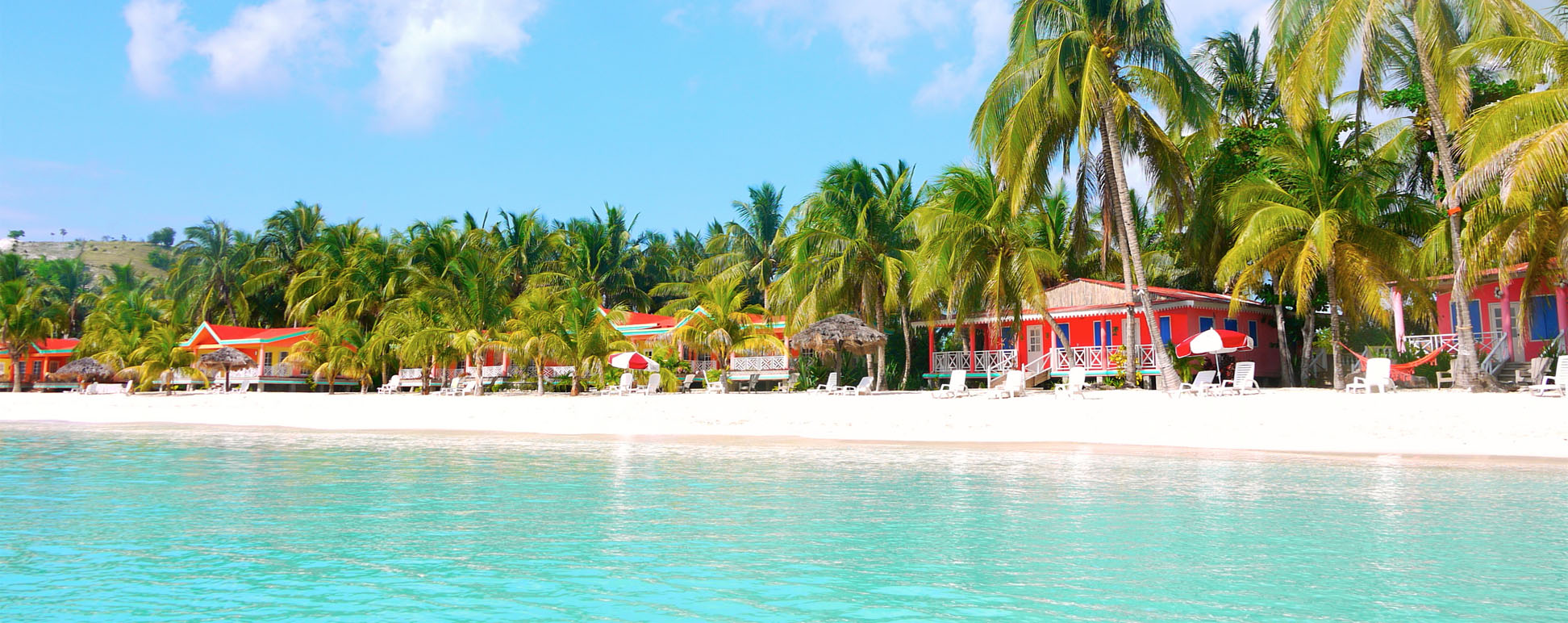
Purposeful Reshaping of Developing Communities & Nations
Historic Abaka Bay Resort
![]() Île à Vache is home of Abaka Bay Resort, located on this historical treasure island of the infamous 17th century pirate turned Lieutenant Governor, Sir Henry Morgan.
Île à Vache is home of Abaka Bay Resort, located on this historical treasure island of the infamous 17th century pirate turned Lieutenant Governor, Sir Henry Morgan.
This twenty square-mile, undeveloped crown-jewel of the Caribbean islands sits just offshore the southwest peninsula of Haïti, about 6 1/4 miles from Les Cayes.
Abaka Bay Resort is nestled along what is recognized as one of the world’s most beautiful beaches, idyllically situated on the most southwesterly tip of the island.
Abaka Bay Resort opened its doors to heads of state, dignitaries, celebrities, and classic holidayers alike just over two decades ago.
Renovation and expansion of this historic resort, and Haïti’s most storied, is an integral part of Abaka Bay Awake, the first phase of this much larger, sustainable, socio-economic development plan called The Île à Vache Initiative.

Abaka Bay Resort, Île à Vache, Haïti
Colombus, The Spanish & French
![]() In December of 1492, during his first journey to the New World, Christopher Columbus, sailing under the Spanish flag, discovered the island he named La Isla Española (“the Island of Spain”, later Latinized to Hispaniola). This island is shared by Haïti and the Dominican Republic today.
In December of 1492, during his first journey to the New World, Christopher Columbus, sailing under the Spanish flag, discovered the island he named La Isla Española (“the Island of Spain”, later Latinized to Hispaniola). This island is shared by Haïti and the Dominican Republic today.
French influence on the island began in 1625, and by 1660 the French controlled what was called Saint-Domingue, on the western side of Hispaniola. From 1697, the eastern side of the island would be Spanish controlled and the western side of the island (Haïti’s) French controlled.
Haïti quickly became one of France’s wealthiest colonies, becoming known as the Pearl of the Antilles under the rule of Louis XIV, nomenclature found today on Haïti’s license plates.

Christopher Columbus Arrives in America
Haïti's Independence
![]() General François-Dominique Toussaint Louverture was a legendary leader in Haïti’s battle for independence from the French. Noted for his military and political acumen, he shaped what was at first a mere slave insurgency in 1791 into a full-fledged revolutionary movement that would lead to Haïti’s independence.
General François-Dominique Toussaint Louverture was a legendary leader in Haïti’s battle for independence from the French. Noted for his military and political acumen, he shaped what was at first a mere slave insurgency in 1791 into a full-fledged revolutionary movement that would lead to Haïti’s independence.
General Jean-Jacques Dessalines (pictured below) was the heir apparent after Toussaint Louverture was falsely incarcerated by the French during what was agreed to be a peaceful parley, whereupon he was deported to France.
Dessalines declared the French controlled territory a free republic in 1804, abolished slavery, and renamed the new country after the indigenous Taíno name for the entire island, Ayiti (land of the high mountains), or Haïti. Dessalines, the first ruler and governor-general of independent Haïti, was later named Jacques I, Emperor of Haïti by the generals of the Haïtian Revolutionary Army.
Haïti’s declaration of independence made it the second free republic in the Western Hemisphere, right after the United States, and the first republic ever governed by freed slaves, a then radical assertion of racial equality.
Today Haïti is unitary semi-presidential republic, where the president is the head of state and the prime minister is the head of government.

Battle of Vertières (Credit: Ulrick Jean Pierre)
Haïti-United States Nexus
![]() The histories of Haïti (including Île à Vache specifically) and that of the United States are inextricably intertwined.
The histories of Haïti (including Île à Vache specifically) and that of the United States are inextricably intertwined.
In 1779 free Haïtian men (referred to as chausseurs or hunters) from the then French colony joined American forces in their battle for independence. American Historian, clergyman, and soldier Theophilus Gould Steward wrote that these Haïtian soldiers bore away from our altars the sacred fire of liberty to rekindle it in their own land.
Henri Christophe, thought to have in his youth been a drummer boy during the American Revolution, was a key leader in Haïti’s fight for independence and became the only monarch of what would be called the Kingdom of Haïti after Dessalines’ assassination in 1806.
Notably, it was the Haïtian’s own battle for independence that uprooted Napoleon Bonaparte’s hold in the America’s and led to the French’s sell of the Louisiana purchase to the United States under then President Thomas Jefferson.
Haïti was the first country in the Western Hemisphere to abolish slavery, an example Abraham Lincoln would look to years later when he freed the slaves in the United States.
Interesting enough, Abraham Lincoln agreed to send freed slaves to settle on Île à Vache, Haïti the day before the Emancipation Proclamation went into affect on January 1, 1863.

Chasseurs-Volontaires de Saint-Domingue
Our Mission Statement
Our mission & aim is to administer innovative social & physical infrastructure initiatives coupled with tourism maturation & urban renewal developments. These measured gambits bear the fruits of intuitive master site plans, community revitalization, direct & indirect job creation, measurable economic growth, targeted social impact solutions, general poverty abatement, spiritual renewal, and full spectrum protection of stakeholder interests. Purposeful reshaping of developing communities & nations is the bedrock of all our activities.
